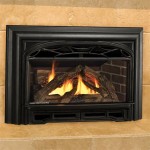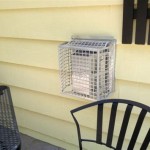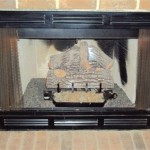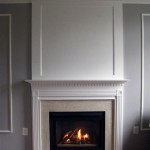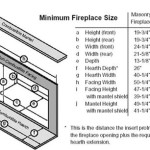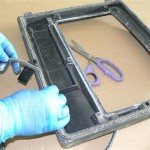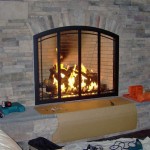How Much Is A Fireplace Worth On An Appraisal?
Determining the value of a fireplace during a real estate appraisal is not a straightforward process. While a fireplace often enhances the appeal of a home, its monetary contribution to the overall property value can vary significantly based on several factors. Appraisers consider these factors to arrive at a fair and accurate assessment. These considerations include the type of fireplace, its condition, its location within the home, and the prevailing market trends in the area.
A fireplace is generally considered a desirable feature, reflecting a sense of warmth, comfort, and aesthetic appeal. Real estate agents frequently highlight fireplaces in property listings, aiming to attract potential buyers who appreciate the ambiance they create. However, its presence alone does not automatically translate into a substantial increase in the appraised value. It's essential to understand the components that influence how an appraiser will quantify its worth during the appraisal process.
Type and Condition of the Fireplace
The type of fireplace profoundly affects its perceived value. A traditional masonry fireplace, built with brick or stone, is frequently viewed as a more valuable asset than a prefabricated metal fireplace insert. Masonry fireplaces are generally considered more durable and aesthetically pleasing, often becoming a focal point of the room. They evoke a sense of timelessness and craftsmanship, appealing to buyers who value classic architectural details.
Prefabricated fireplaces, while offering convenience and often lower installation costs, may not contribute as significantly to the overall property value. These models are typically less expensive to install and can be easily replaced, influencing the appraiser’s assessment. The appraiser will consider the age and condition of the prefabricated unit, along with its energy efficiency, when determining its worth.
The condition of the fireplace is paramount, irrespective of its type. A well-maintained fireplace, free from cracks, soot buildup, or structural damage, will undoubtedly hold more value. Appraisers scrutinize the fireplace for any signs of disrepair, including damaged firebricks, crumbling mortar, or a malfunctioning damper. These issues can detract from the fireplace's value and may necessitate costly repairs, leading to a reduced appraisal value.
A professional inspection and cleaning are recommended before an appraisal to ensure the fireplace is in optimal condition. Addressing any necessary repairs, such as patching cracks or replacing damaged components, can positively impact the appraiser's assessment. Similarly, ensuring the chimney is clean and free from obstructions is crucial for safety and can contribute to a favorable appraisal.
Fuel type also plays a role. Wood-burning fireplaces, while traditional, may face scrutiny due to environmental concerns and local regulations regarding wood-burning. Gas fireplaces, on the other hand, are often perceived as more convenient and environmentally friendly, potentially adding greater value in certain markets. Electric fireplaces, while easy to install and operate, typically offer the least added value due to their lower perceived authenticity and limited heating capacity.
Location and Design Integration
The location of the fireplace within the home significantly impacts its perceived value. A fireplace strategically located in a prominent area, such as the living room or family room, will generally contribute more to the overall appraisal than one situated in a less-used space. The fireplace becomes a central gathering point, enhancing the ambiance and functionality of the primary living area. Its visual appeal and contribution to the room's atmosphere are critical factors.
A fireplace integrated seamlessly into the home’s design and architectural style also carries more weight. A well-designed fireplace complements the existing décor and enhances the overall aesthetic appeal of the room. The mantel, surround, and hearth should be in harmony with the home's style, whether it is traditional, contemporary, or modern. A poorly designed fireplace, out of sync with the rest of the home, may not add significant value and could even detract from the property's overall appeal.
The size and scale of the fireplace should be proportionate to the room. An oversized fireplace in a small room can feel overwhelming, while a tiny fireplace in a large room may appear insignificant. The appraiser will consider the fireplace's dimensions relative to the room's size and assess its overall impact on the space. A well-proportioned fireplace contributes to the room's balance and visual appeal, enhancing its perceived value.
Furthermore, the functionality of the fireplace in relation to the room's layout is crucial. A fireplace that hinders furniture placement or disrupts the flow of traffic may not be viewed favorably. The appraiser will assess the fireplace's practicality and its contribution to the room's usability. A well-positioned fireplace enhances the room's comfort and functionality, adding to its overall appeal and value.
Outdoor fireplaces are also becoming increasingly popular and can enhance a home's value, particularly in regions with mild climates. An outdoor fireplace creates an inviting outdoor living space, extending the home's entertainment area and providing a focal point for gatherings. The appraiser will consider the design, materials, and location of the outdoor fireplace, along with its overall integration with the landscape, when determining its contribution to the property's value.
Market Trends and Comparable Sales
The prevailing market trends in the area exert a significant influence on the value assigned to a fireplace during an appraisal. In some regions, fireplaces are highly sought-after features, particularly in colder climates where they provide supplemental heating and create a cozy ambiance. In other areas, fireplaces may be less desirable, especially in warmer climates where they are primarily used for aesthetic purposes.
Appraisers rely on comparable sales data to determine the market value of a fireplace. They analyze recent sales of similar properties in the area, comparing homes with fireplaces to those without. By examining the price differences between these properties, the appraiser can estimate the contribution of the fireplace to the overall property value. The availability of comparable sales with similar fireplace features is crucial for an accurate appraisal.
The appraiser must also consider the specific preferences of buyers in the local market. In some areas, buyers may prioritize modern amenities and energy efficiency over traditional features like fireplaces. In other areas, buyers may value the character and charm of a traditional fireplace, willing to pay a premium for this feature. Understanding the local market dynamics is essential for accurately assessing the fireplace's worth.
Seasonal factors can also impact the perceived value of a fireplace. During the winter months, when fireplaces are more frequently used, their value may be higher. Buyers may be more willing to pay extra for the warmth and ambiance a fireplace provides during the colder months. Conversely, during the summer months, the fireplace may be less of a priority for buyers, potentially diminishing its perceived value.
Ultimately, the appraiser's assessment of the fireplace's value is based on a comprehensive analysis of all relevant factors, including its type, condition, location, design integration, market trends, and comparable sales data. The appraiser's goal is to determine a fair and accurate representation of the fireplace's contribution to the overall property value, reflecting its appeal and functionality within the context of the local real estate market.

Obsolete But Cozy Does Adding A Fireplace Increase Home Value

Obsolete But Cozy Does Adding A Fireplace Increase Home Value

Is Gas Or Wood Fireplace Better For Re Dreifuss Fireplaces

Does Adding A Fireplace Increase Home Value That

Obsolete But Cozy Does Adding A Fireplace Increase Home Value

How To Read An Appraisal Report Written By Appraiser Realvals

Does Adding A Fireplace Increase Home Value That

Why Adding A Fireplace Can Increase Your Home Value Redfin

What Type Of Fireplace Adds The Most Value Dreifuss Fireplaces

Does Removing A Fireplace Decrease Home Value Dreifuss Fireplaces

